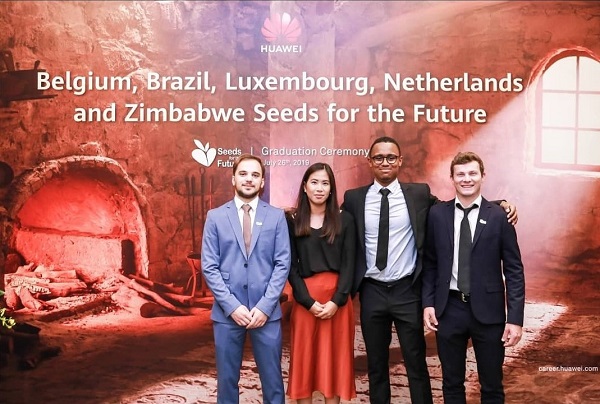 Seeds for the Future Luxembourg 2019;
Credit: Huawei
Seeds for the Future Luxembourg 2019;
Credit: Huawei
Monday marked the launch of the fourth edition of Seeds for the Future Luxembourg, a programme organised by Huawei Luxembourg.
Every year since 2017, Huawei Luxembourg has invited students with a strong interest in technology to take part in Seeds for the Future, the company's flagship global corporate social responsibility (CSR) programme designed to develop the ICT talent of tomorrow.
The last few months have highlighted the importance of technology and innovation as the world is turning digital. With younger generations facing unprecedented disruption in their education and entry into the workforce, it is more important than ever to support students by giving them the opportunity to further develop their technological skills.
This year, to ensure the continuity if the programme, Seeds for the Future is taking place online from 26 to 30 October 2020. Over the space of five days, selected students will be immersed in a journey around technology and culture where they will learn about the latest technology trends, hear from thought leaders and explore Chinese culture. Together with in-house field experts and partners, participants will delve deeper into innovative technologies such as 5G, cloud computing and artificial intelligence (AI) and share insights on topics such as cybersecurity and digital transformation.
Dorothee de Nazelle, PR Manager at Huawei Luxembourg, commented: “For the 2020 Seeds for the Future edition, we are delighted to partner for the fourth consecutive year with University of Luxembourg, to begin a partnership with Fondation Jeunes Scientifiques Luxembourg, and to get the support of Jonk Entrepreneuren”.
Since the launch of the initiative in 2008, Huawei has partnered with over 500 universities across 126 countries and regions. A total of 5,770 students have already participated, including eight students from the University of Luxembourg where the programme started four years ago. In Europe, the programme runs in 31 countries and more than 1,300 students have participated in the programme since its European launch in 2011.








